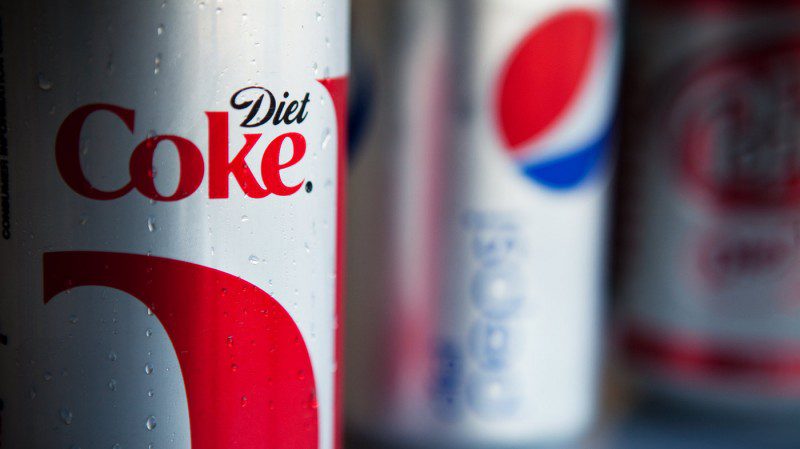You’d be forgiven for thinking that diet drinks are a superior choice to the regular sugar laden varieties, after all they are sugar and calorie free, so win win you’d think, right?! But despite the ‘sugar free’ holier-than-thou image, diet drinks are far from a healthy choice. These diet drinks are commonly flavoured with an artificial sweetener called aspartame which is associated with a whole range of nasties. Joanna Blythman in her latest book ‘Swallow This’ highlights a study that indicates regular consumption of diet drinks, even one per day contributes to weight gain and increases the likelihood of a range of metabolic conditions such as diabetes, high blood pressure and heart disease.
Blythman outlines that aspartame contributes to weight gain by sending the body on a ‘calorie hunt’ encouraging overeating after the brain is momentarily tricked into thinking it has consumed sugar. I don’t know about you, but if memory serves me correctly if I had a diet coke I would crave sugar or carbohydrates afterwards. This has been shown that this is most likely due to the sweetness of aspartame; it is over 200 times sweeter than sugar, mmmm delicious. Despite the lack of sugar the brain triggers an insulin response which promotes fat storage in the body and studies also suggest that aspartame can disrupt our appetite regulating hormones, namely leptin and ghrelin which can again lead to overeating.
The European Food Safety Authority have deemed aspartame safe for consumption in “small quantities” despite accumulating evidence that frequent consumption of artificial sweeteners contribute to not only metabolic conditions mentioned above but also migraines, seizures and other quality of life inhibitors. At the rate these sweeteners are entering the food chain I have to wonder where these “small quantities” start and reality really end. It is really worth checking your food labels to see where aspartame is lurking. Commonly found in not only in diet drinks, but also in other food products including chewing gum, cooking sauces, fat free yoghurts, flavoured water, poor quality supplements, protein powders and vitamin drinks. For now, I rather take my chances with an occasional bit of sugar and give the sugar free options a miss.
(Credit: Mary Uí Bhroin of www.nufo.ie)











